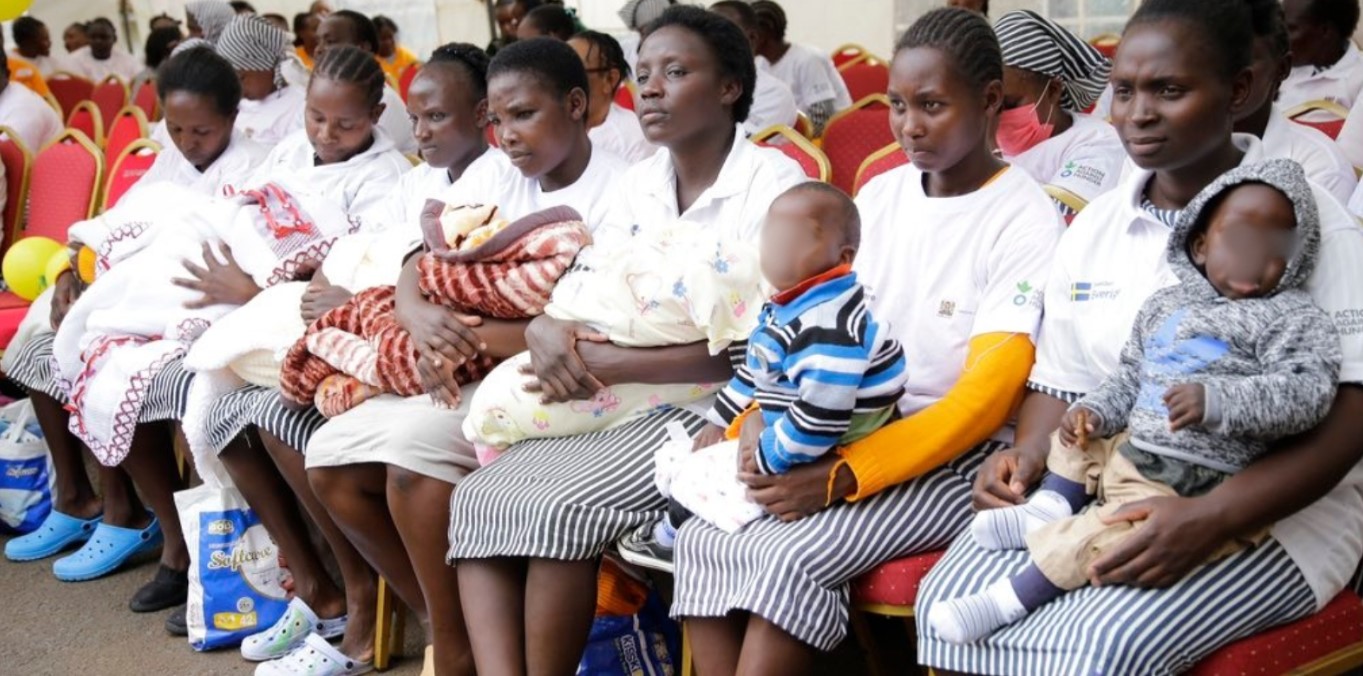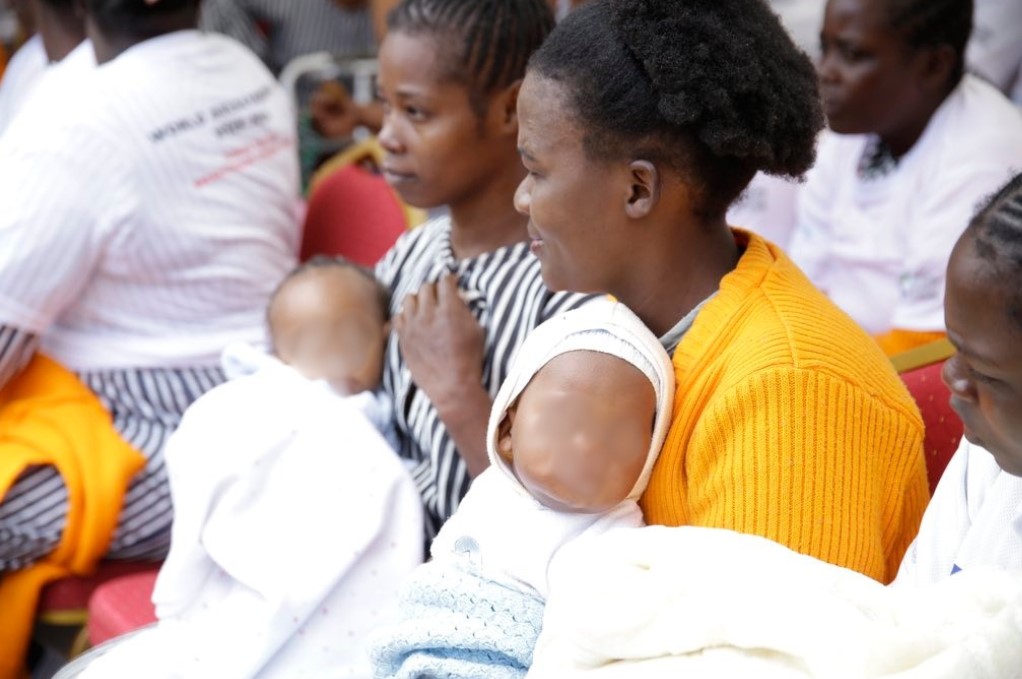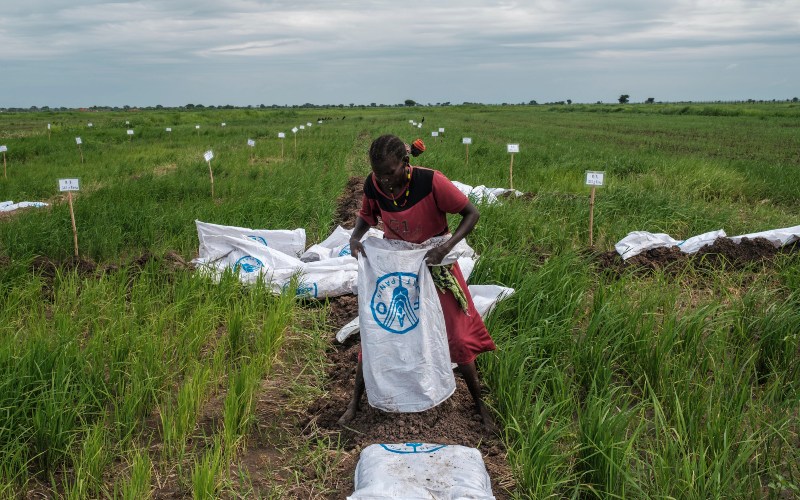Govt launches world breastfeeding week at Lang'ata Women’s Prison

Principal Secretary Mary Muthoni highlighted Kenya’s commitment to improving infant and young child nutrition through its policies.
The Ministry of Health kicked off World Breastfeeding Week at Lang'ata Women’s Prison, aiming to enhance awareness about breastfeeding.
This year’s global celebration runs from August 1 to August 7, 2024, with the theme "Closing the Gap—Breastfeeding Support for All," emphasising a vital commitment to inclusivity and ensuring support reaches every breastfeeding mother across the nation.
More To Read
- Children killed in Sudan’s South Kordofan drone attacks as humanitarian crisis worsens
- UNICEF, Save the Children hail Turkana’s progress in tackling malnutrition
- Sudan’s crisis deepens with communities trapped in ‘siege conditions’
- Over 600 million children exposed to violence at home, UNICEF warns
- Gaza: Two children killed every day during fragile ceasefire, says UNICEF
- UNICEF warns over 400 million children live in extreme poverty as progress stalls
In a statement issued on Friday, Principal Secretary Mary Muthoni highlighted Kenya’s commitment to improving infant and young child nutrition through its policies.
"The Constitution of Kenya, under Article 53(1)(c), ensures every child has the right to basic nutrition. Additionally, the Employment Act 2007 provides for 90 days of paid maternity leave, and the Health Act 2017 includes Articles 71 and 72, which mandate workplace support for breastfeeding mothers. These measures reflect the government's dedication to creating an environment that supports breastfeeding.”
Since 2008, Kenya has made notable progress in breastfeeding rates, increasing from 32 per cent to 61 per cent by 2014. However, this rate slightly declined to 60 per cent in 2022, still below the global target of 70 per cent. With over half (52 per cent) of working women returning to work within three months of childbirth, it remains crucial to foster supportive environments that enable continued breastfeeding.
“The Ministry of Health is dedicated to ensuring that no woman is overlooked in the promotion of breastfeeding. This commitment extends to mothers in correctional facilities, teenage mothers, those affected by emergencies, and breastfeeding mothers with disabilities—each facing unique challenges that require specialised support,” added PS Muthoni.
 Inmates follow the launch of the World Breastfeeding Week at Lang'ata Women’s Prison on August 2, 2024. (Photo: UNICEF)
Inmates follow the launch of the World Breastfeeding Week at Lang'ata Women’s Prison on August 2, 2024. (Photo: UNICEF)Inmates follow the launch of the World Breastfeeding Week at Lang'ata Women’s Prison on August 2, 2024. (Photo: UNICEF)
The government implemented a range of policies and initiatives to bolster this effort. These include the Maternal, Infant, and Young Child Nutrition (MIYCN) guidelines, workplace support legislation, and regulations on breastmilk substitute marketing. To complement these policies, monitoring initiatives are in place to ensure effective programme implementation.
One of the key initiatives highlighted by Principal Secretary Mary Muthoni is the Baby-Friendly Community and Baby-Friendly Hospital Initiatives. These programmes aim to equip healthcare workers and communities with the skills needed to promote and sustain optimal breastfeeding practices. However, consistent implementation of these programmes remains a challenge.
According to the Lancet, breastfeeding prevents approximately 823,000 child deaths annually, with a significant portion occurring in infants under six months. It also reduces mortality from infections by 88 per cent among infants under three months and prevents 72 per cent of diarrhoea admissions and 57 per cent of respiratory infection admissions. Additionally, breastfeeding supports cognitive development and lowers the risk of childhood overweight and obesity.
"Breastfeeding offers substantial benefits, including a decreased risk of ovarian cancer and a 6 per cent reduction in the likelihood of invasive breast cancer for each year of breastfeeding. It also enhances mother-child bonding and birth spacing while preventing around 20,000 deaths from diseases such as breast cancer and diabetes annually," said Muthoni
Breastfeeding is critical for the health, survival, and development of children. The World Health Organisation (WHO) and UNICEF recommend initiating breastfeeding within the first hour of birth and continuing exclusive breastfeeding for the first six months. Breastmilk provides all essential nutrients during this period and remains beneficial when breastfeeding extends up to two years or beyond.
Research indicates that exclusive breastfeeding (EBF) plays a crucial protective role in reducing infant morbidity and mortality from respiratory and gastrointestinal infections.
Top Stories Today












































